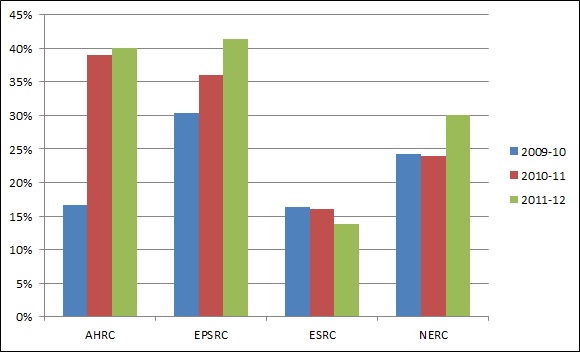Are you applying to the Marie Skłodowska-Curie Individual Fellowships scheme in September 2016?
Although the call does not formally open until 14/4/16, now is the time to start working with your potential fellow to ensure that your application is ready in good time. This is a popular scheme for applications from BU and, as it has a deadline of 14/9/16, this puts pressure on your fellow academics undertaking quality reviews at an already busy time. You may also wish to avoid writing your application in August when you are preparing for the new academic year.
To this end, RKEO are providing a two-day workshop with Dr Martin Pickard (our external bidding consultant) on 16th and 17th March 2016 for BU academics and we have now confirmed additional workshop dates on the 24th and 25th of May 2016 when the workshop will be repeated – we will, however, be gauging demand for this. This workshop will take you through all aspects of exploring the call requirements and writing your bid, plus the opportunity to discuss your developing application with academics on the same journey.
You are encouraged to attend with your potential fellow but they will need to make their own travel arrangements and cover any financial outlay.
Booking are now open for these two-day workshops. Please note that you will need to attend both days. Please send your request to attend to Dianne Goodman, RKEO Funding Development Team Co-ordinator by Friday 11th March. Please let us know if you will be bringing your potential fellow so that sufficient catering can be ordered.
In the meantime, to find out more about this call, please refer to the funding opportunity page on the Horizon 2020 Participant Portal and the Work Programme for Marie Skłodowska-Curie Actions, which gives vital information on the Horizon 2020 context for this call. If you have any questions before the workshop, please contact Emily Cieciura, RKEO Research Facilitator: EU & International.




 We heard some excellent news at the end of last week that BU academics
We heard some excellent news at the end of last week that BU academics 










 From Sustainable Research to Sustainable Research Lives: Reflections from the SPROUT Network Event
From Sustainable Research to Sustainable Research Lives: Reflections from the SPROUT Network Event REF Code of Practice consultation is open!
REF Code of Practice consultation is open! BU Leads AI-Driven Work Package in EU Horizon SUSHEAS Project
BU Leads AI-Driven Work Package in EU Horizon SUSHEAS Project ECR Funding Open Call: Research Culture & Community Grant – Apply now
ECR Funding Open Call: Research Culture & Community Grant – Apply now ECR Funding Open Call: Research Culture & Community Grant – Application Deadline Friday 12 December
ECR Funding Open Call: Research Culture & Community Grant – Application Deadline Friday 12 December MSCA Postdoctoral Fellowships 2025 Call
MSCA Postdoctoral Fellowships 2025 Call ERC Advanced Grant 2025 Webinar
ERC Advanced Grant 2025 Webinar Update on UKRO services
Update on UKRO services European research project exploring use of ‘virtual twins’ to better manage metabolic associated fatty liver disease
European research project exploring use of ‘virtual twins’ to better manage metabolic associated fatty liver disease